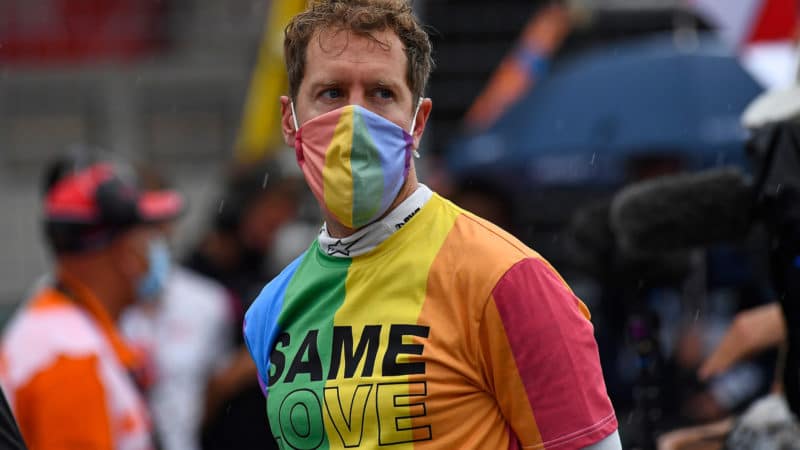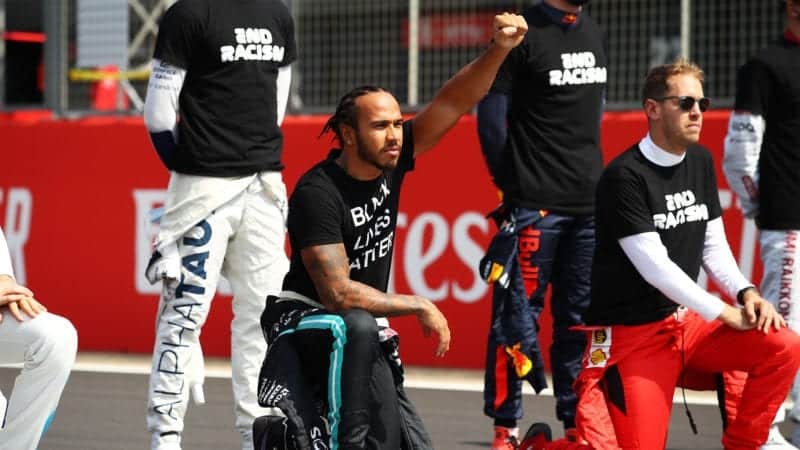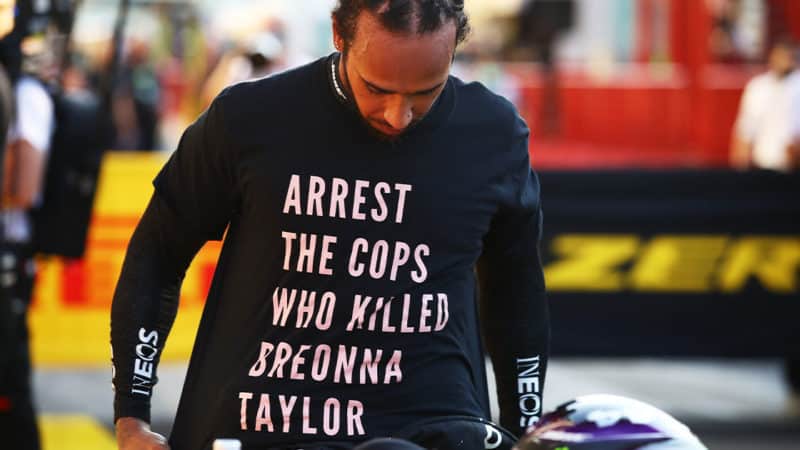The timing could well be coincidental, but there’s a part of me pointing the finger at FIFA for this.
As the World Cup prepared to kick off in Qatar, there was a bizarre rant from Gianni Infantino in a pre-tournament press conference that represented a major u-turn on FIFA’s approach. Having stated the first World Cup in the Middle East would be a force for good, opening up conversations – particularly around the rights of the LGBTQ+ community and migrant workers – Infantino then lashed out at those having those conversations.
Backing up the change of approach, sporting penalties (in the form of a yellow card) were threatened against team captains wanting to wear a ‘One Love’ rainbow armband.
In fact, it went further, with the media director of the German Football Association saying it was “extreme blackmail” as the teams intending to wear the armband were “threatened with massive sporting sanctions without specifying what these would be”.
“Act now or swim later”: Vettel’s Miami GP t-shirt warned the city will be under water by 2060 unless action is taken on emissions
It was a strong talking point in the opening few days of the tournament, and then as is so often the case – and in Formula 1 we’re certainly guilty of this too – when the sporting element became more significant that’s where interest took hold and comments by the end were of whether it was the greatest final ever.
Sure, you can enjoy and acknowledge brilliant matches or brilliant races in countries where you might question other actions separate to the sport, but by taking the money to go there in the first place both the hosts and the organisers should be accepting that those topics can be spoken about.
FIFA’s stance has opened the door for other governing bodies to feel empowered to do similar. It’s the wrong sort of empowering, in my opinion.
And that’s where it feels the FIA is right now.




